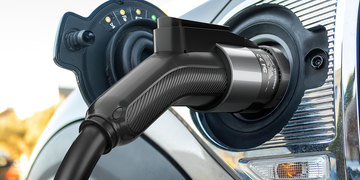What are the risks of installing EV charging stations? The amount of high voltage available at public EV charging stations is itself a hazard. Improper use of public charging stations can cause burns, electrocutions, and shocks. Charging a vehicle with a damaged battery can cause a fire. Because these stations are located outdoors, dangers are increased by weather.
Telgeoot Level 2 Charger is easy to install, Ultra-Low Electricity Rates EV Charger has been equipped with multiple safety protections, Over Voltage protection, Overload protection, Short Circuit protection, Ground protection, Earth Leakage protection. This ev charging station unit can operate in environments of -30℃ to 55℃ (-22°F to 131°F). The connector operating life is up to 10000 times. Allows to adjust charging current range from 1 to 48A, level 2 EV 240V 11kw home charger can work 7X faster than a normal Level 1 chargers, Say goodbye to long charging times.
As EV adoption continues to rise, the need for accessible and reliable charging infrastructure becomes paramount. However, like any infrastructure project, installing EV charging stations comes with its own set of risks and considerations. In this article, we'll explore the potential risks associated with installing EV charging stations and how to mitigate them effectively.
Cost Overruns: One of the primary risks associated with installing EV charging stations is the potential for cost overruns. Factors such as site preparation, electrical upgrades, permitting fees, and equipment costs can contribute to unexpected expenses. To mitigate this risk, it's crucial to conduct thorough cost estimates and feasibility studies before embarking on the installation project. Working closely with experienced contractors and suppliers can also help ensure accurate cost projections.

Technical Challenges: Installing EV charging stations involves complex technical considerations, including electrical infrastructure requirements, equipment compatibility, and regulatory compliance. Technical challenges such as insufficient power capacity, voltage drop issues, and integration with existing infrastructure can pose significant hurdles. Engaging qualified electrical engineers and contractors with experience in EV charging installations can help mitigate technical risks and ensure successful project execution.
Permitting and Regulatory Compliance: Obtaining permits and navigating regulatory requirements can be a time-consuming and bureaucratic process. Delays in obtaining permits or compliance issues with local regulations can prolong the installation timeline and increase project costs. To mitigate this risk, it's essential to thoroughly research and understand the permitting process and regulatory requirements in the project location. Working closely with local authorities and consulting with experienced professionals can help streamline the permitting process and ensure compliance with regulations.
Site Selection and Accessibility: Selecting the right location for EV charging stations is critical to their success and usability. Factors such as proximity to major roads, visibility, accessibility, and parking availability can impact the station's usage and profitability. Poor site selection can result in underutilized stations and reduced return on investment. Conducting thorough site evaluations and market analyses can help identify optimal locations for EV charging stations and mitigate the risk of poor site selection.
Security and Vandalism: EV charging stations, like any public infrastructure, are susceptible to security threats and vandalism. Damage to charging equipment or theft of charging cables can disrupt service and incur repair costs. To mitigate this risk, installing security measures such as surveillance cameras, lighting, and physical barriers can deter potential vandals and enhance station security. Additionally, choosing secure and tamper-resistant charging equipment can help safeguard against unauthorized access and vandalism.
Demand Uncertainty: Predicting future demand for EV charging stations can be challenging due to factors such as evolving consumer preferences, technological advancements, and changes in government policies. Investing in infrastructure that may become obsolete or underutilized poses a significant risk to project viability. Conducting thorough market research and demand forecasting can help mitigate this risk by informing investment decisions and ensuring alignment with future demand trends.
What are the risks of installing EV charging stations? installing EV charging stations presents various risks and challenges that require careful planning, coordination, and risk mitigation strategies. By addressing factors such as cost overruns, technical challenges, permitting and regulatory compliance, site selection, security, and demand uncertainty, stakeholders can minimize risks and maximize the success of EV charging infrastructure projects. Collaboration with experienced professionals, thorough due diligence, and proactive risk management are essential for navigating the complexities of installing EV charging stations effectively.





